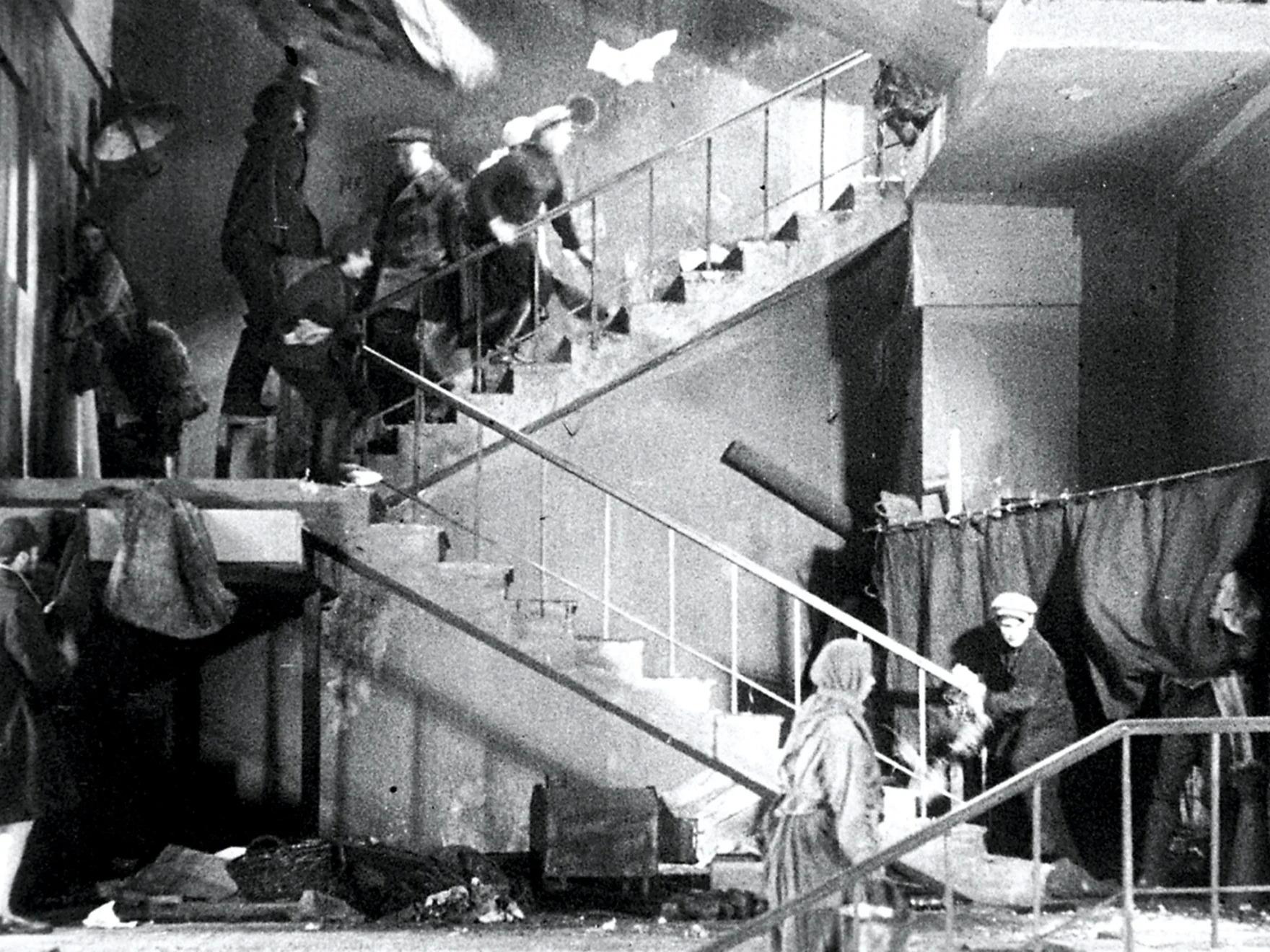
A girl, Parasha Pitunova, comes to Moscow from a deep province, eventually she arrives at a house. This is a story about the house and its inhabitants.
EN
The city sleeps…
The house on Trubnaya Street sleeps as well.
The city wakes up…
… looks in the mirror and begins to wash up.
Opening titles
“[T]here could be no mistaking Barnet’s immense adaptability in the face of any kind of material, his narrative skill, his freedom and his lack of interest in any kind of ‘message’. […] His films convey more than most the intensity of happiness, the physical pleasure of meeting and contact, the inevitable tragedy of relationships.”
Bernard Eisenschitz1
“Boris Barnet was a poet at a time when cinema had thrown out all its simple, unmannered poets, in order to implant mannerism. Alexander Dovzhenko’s poetry is really mannerism, with those apples around the old man dying… Barnet’s films like The Girl with a Hatbox and The House on Trubnaya were very much influenced by their epoch. They were light-hearted and very funny. They were ironic and even carried their propaganda well: ‘Things are bad,’ they said, ‘but they will improve and this will only be temporary.’ Ideologically, he belonged to that company of filmmakers, but morally he didn’t take part in their games. […] I have the impression that professionals, the same ordinary technicians who still work at Mosfilm who had contact with him, adored him as a person. […] Happy, straightforward, generous, a drinker and a child, all at once. He had no anxiety about being humiliated; he could say, ‘I don’t know how that’s done.’”
Otar Ioseliani2
- 1Bernard Eisenschitz, “A fickle man, or portrait of Boris Barnet as a Soviet director,” in Inside the Film Factory: New Approaches to Russian and Soviet Cinema, eds. Ian Christie & Richard Taylor. (London/New York: Routledge, 1994), 149, 152.
- 2Otar Ioseliani cited in Bernard Eisenschitz, “A fickle man, or portrait of Boris Barnet as a Soviet director,” in Inside the Film Factory: New Approaches to Russian and Soviet Cinema, eds. Ian Christie & Richard Taylor. (London/New York: Routledge, 1994), 162. Interview with Ioseliani, Paris, August 1983.
FR
« On tait souvent la vérité; ainsi: que si l’on excepte Eisenstein, Boris Barnet doit être tenu pour le meilleur cinéaste soviétique. »
Jacques Rivette1
« Il ne faut pas être idiot, mais il faut vraiment avoir un coeur de pierre pour bouder aux films de Barnett. […] Il est là, grâce à Boris Barnett, ce style inimitable qui ne mourra qu’avec le cinéma. »
Jean-Luc Godard2
« Pour parler en général de ma conception du cinéma, j’aime avant tout la comédie, je me plais à introduire des scenes drôles dans un drame, et des épisodes dramatiques dans un film comique. Tout cela est une question de proportion. A quelques exceptions près, tous mes films ont, bien ou mal, exprimé la vie contemporaine et ses problems. Quand je l’ai pu, j’ai toujours opté pour la contemporanéité. […] Mon ambition a été de montrer les hommes dans la vie contemporaine. […] Mais je me demande si je vivrai encore assez longtemps pour peindre vraiment l’homme. Je ne suis pas, je n’ai jamais été un homme de théories. J’ai toujours pris mon matériel dans la vie quotidienne. »
Boris Barnet3

